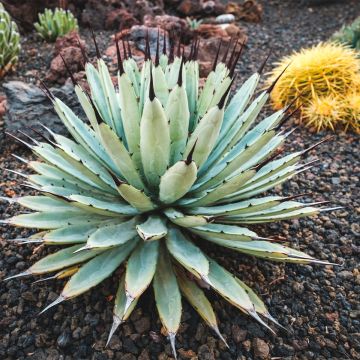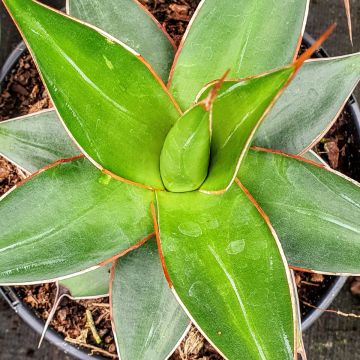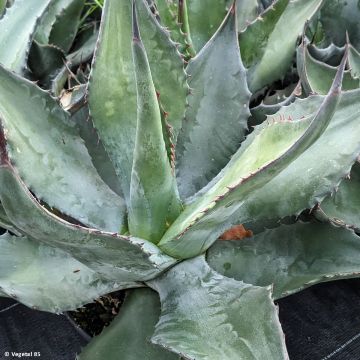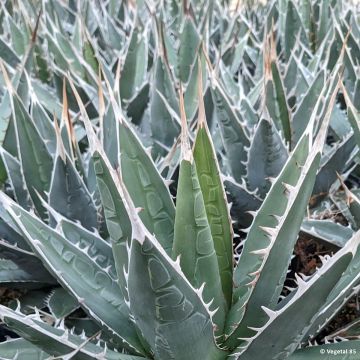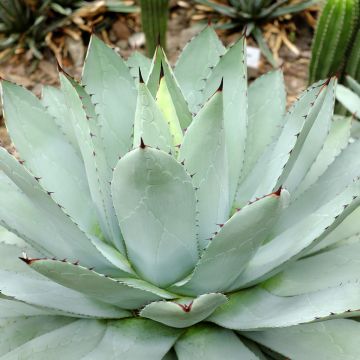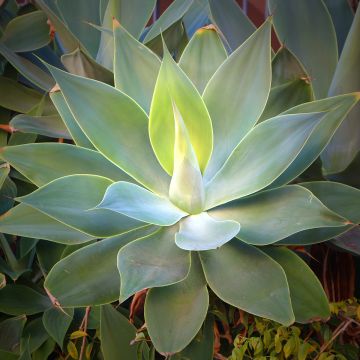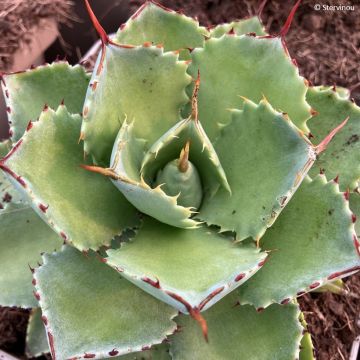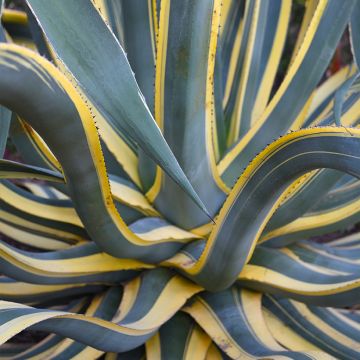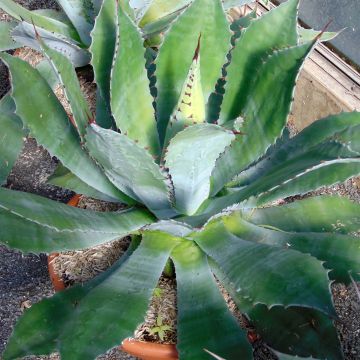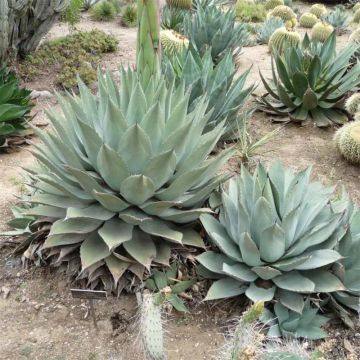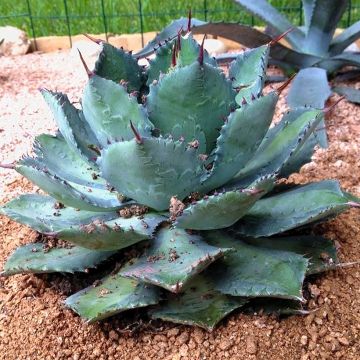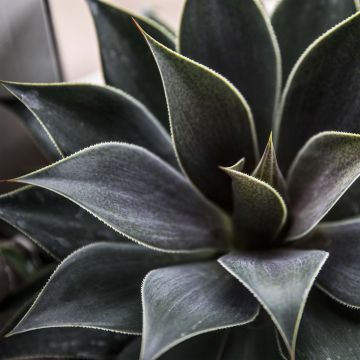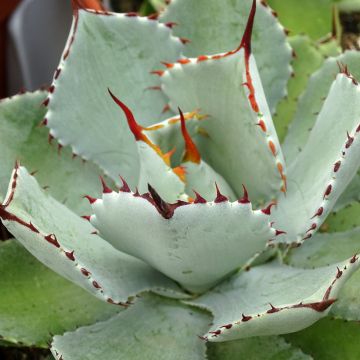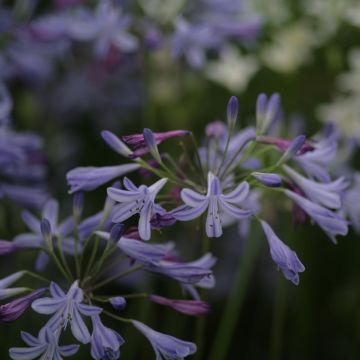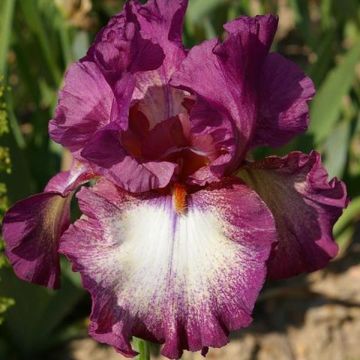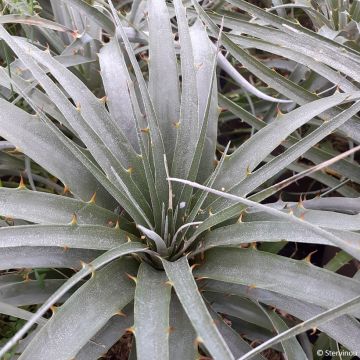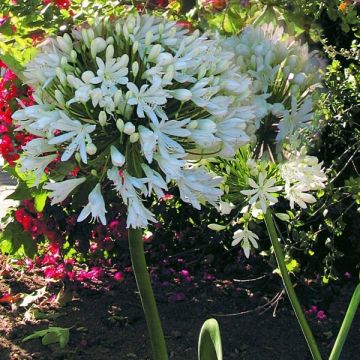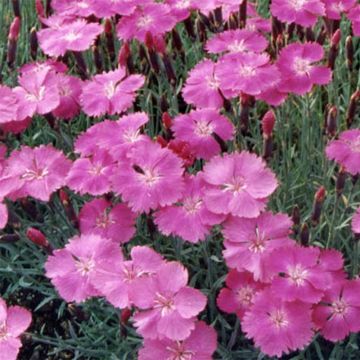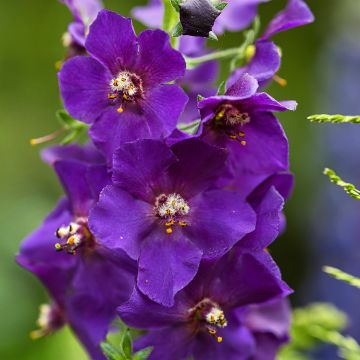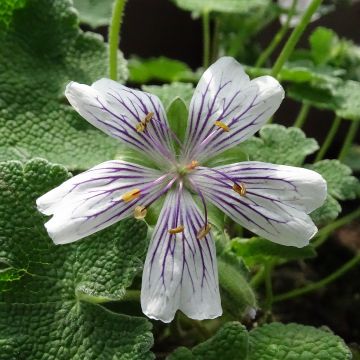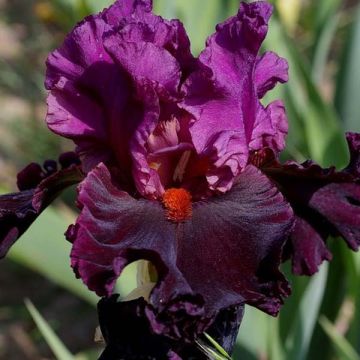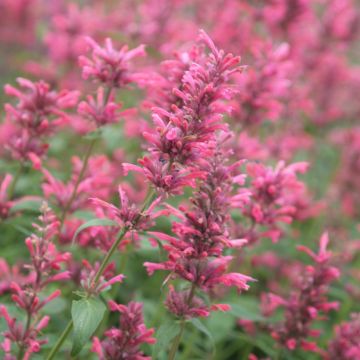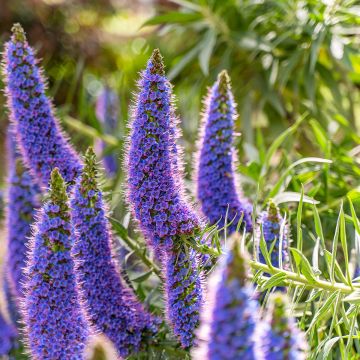Shipping country and language
Your country of residence may be:
Your country of residence is:
For a better user experience on our website, you can select:
Your shipping country:
-
Andorra
-
Austria
-
Belgium
-
Bulgaria
-
Canada
-
Chile
-
Croatia
-
Cyprus
-
Czechia
-
Denmark
-
Estonia
-
Finland
-
France
-
Germany
-
Greece
-
Hungary
-
Iceland
-
Ireland
-
Italy
-
Latvia
-
Lithuania
-
Luxembourg
-
Malta
-
Monaco
-
Netherlands
-
Poland
-
Portugal
-
Romania
-
Slovakia
-
Slovenia
-
Spain
-
Sweden
-
Switzerland
-
United Kingdom
We only deliver seed and bulb products to your country. If you add other products to your basket, they cannot be shipped.
Language:
-
French
-
German
-
Spanish
-
English
-
Italian
My Account
Hello
My wish lists
Log in / Register
Existing customer?
New customer?
Create an account to track your orders, access our customer service and, if you wish, make the most of our upcoming offers.
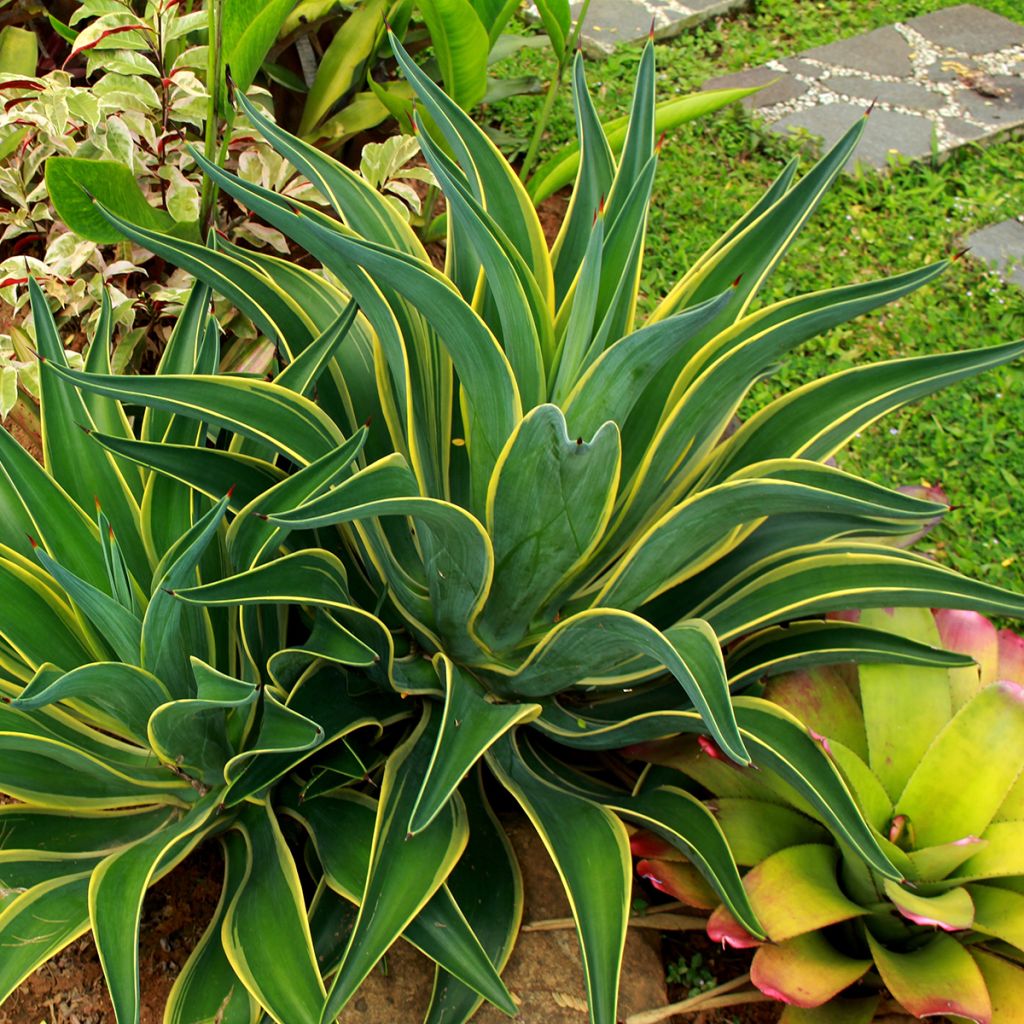

Agave desmetiana Variegata
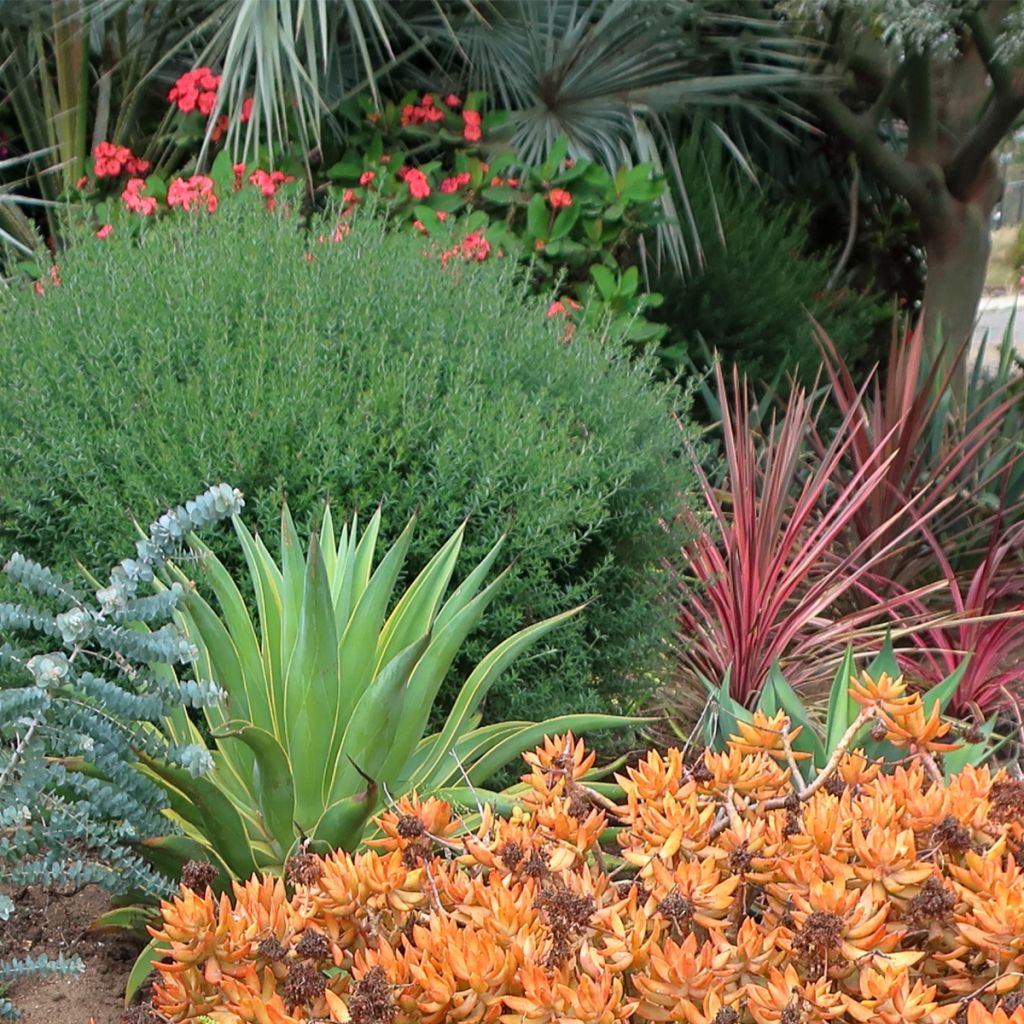

Agave desmetiana Variegata
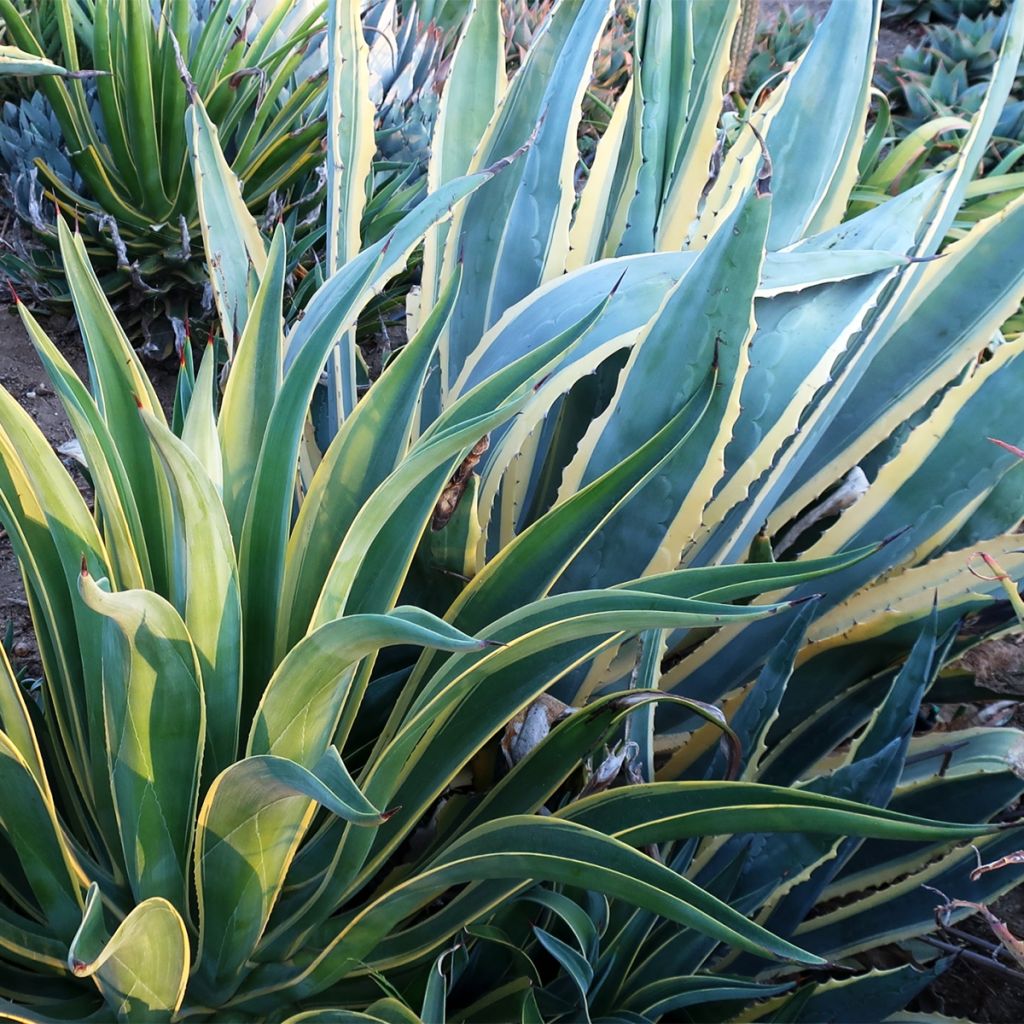

Agave desmetiana Variegata
Agave desmetiana Variegata
Agave desmetiana Variegata
Smooth Agave, Dwarf Century Plant
Why not try an alternative variety in stock?
View all →Order in the next for dispatch today!
Dispatch by letter from €3.90.
Delivery charge from €5.90 Oversize package delivery charge from €6.90.
Current delivery delay: 2 days.
More information
This item is not available in your country.
Schedule delivery date,
and select date in basket
This plant carries a 12 months recovery warranty
More information
We guarantee the quality of our plants for a full growing cycle, and will replace at our expense any plant that fails to recover under normal climatic and planting conditions.
From €5.90 for pickup delivery and €6.90 for home delivery
Express home delivery from €8.90.
Does this plant fit my garden?
Set up your Plantfit profile →
Description
Agave desmetiana 'Variegata' is a beautiful variegated form of the smooth agave, so named because of its spineless leaves. It is an ornamental variety of medium size, well adapted to sheltered rockeries on the Mediterranean coast. It forms a rosette of succulent leaves gracefully folded into a gutter, finely edged in yellow on a green background. They are equipped with a long yellow terminal spine that turns reddish-brown. A mature rosette will produce flowering stalks bearing bright pale-yellow flowers. This perennial ensures its perpetuity by suckering in the form of daughter rosettes. Not very hardy, it is an exceptional plant for dry and warm gardens. Plant it with other succulents and exotic plants in a rocky setting.
Discovered in Mexico (Sinaloa, Veracruz), possibly resulting from hybridisation, Agave desmetiana 'Variegata' or Variegated De Smet Agave has great ornamental value. It belongs to the Asparagaceae family (formerly Agavaceae), just like Yuccas or tuberose. This perennial succulent has rhizomes capable of producing numerous suckers, especially as flowering approaches, but it is almost devoid of aerial stems. This agave, which grows rather quickly, forms a beautiful rosette reaching about 80cm (32in) in all directions. It is composed of many succulent lanceolate leaves, 10cm (4in) wide. The leaves are arched, linear, not very thick, and folded along the main vein. They are green, egded with yellow, and covered in a white bloom. Each leaf is equipped with a 3cm (1in) long terminal spine. The intermediate leaves are sometimes slightly twisted or S-shaped. When a rosette reaches the age of reproduction, it produces a flowering stalk reaching 2m (7ft) in height. This stalk bears numerous branches. The branches bear flat and spherical panicles, composed of a myriad of small pale-yellow tubular flowers. The rosette, called semelparous, dies after flowering, which lasts several months, taking care to produce many small rosettes near the base of the mother plant to ensure its perpetuity.
In mild climates, Agave desmetiana 'Variegata' will find its place in a large rockery, a slope, or in a raised bed whose soil has been enriched with gravel or coarse sand. It can be planted with frost-resistant prickly pears such as Opuntia humifusa 'Millevaches', giant fennel, fairly hardy candle cacti (Cleistocactus strausii, Cylindropuntia imbricata), and ground-covering plants such as dwarf mugworts, which are all equally undemanding plants. Gardeners in colder regions can grow it in full sun in a very large pot on a terrace, carefully choosing the most sheltered spot, to recreate a setting inspired by gardens from the edge of the world.
Agave is an edible plant, used in Mexico to make mescal, an alcoholic beverage obtained by fermenting its sugar-rich juice. It is also used in traditional medicine in Mexico, Brazil, and India for its supposed anti-fungal properties. Very rich in nectar, the inflorescences attract many pollinating insects.
Report an error about the product description
Agave desmetiana Variegata in pictures
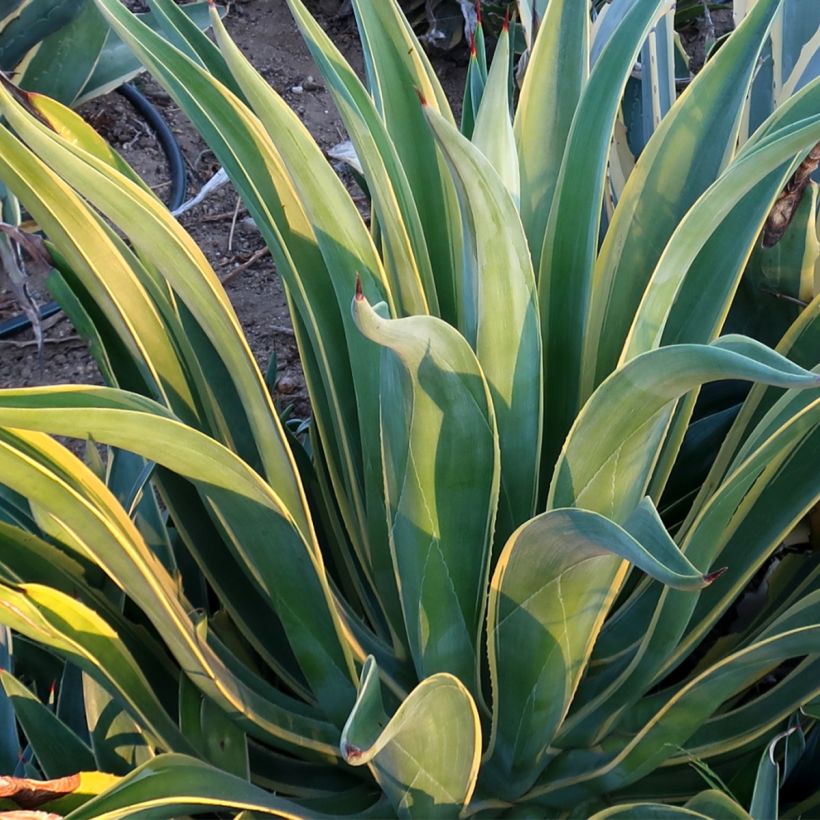



Flowering
Foliage
Plant habit
Botanical data
Agave
desmetiana
Variegata
Agavaceae
Smooth Agave, Dwarf Century Plant
North America
Other Agave
Planting and care
Plant in full sun, in well-drained poor, stony, chalky, or sandy soil. While the plant is quite hardy in dry soil, it does not tolerate excess humidity combined with severe cold.
It will withstand frosts to approximately -4°C (24.8°F).
In cold regions, grow in a large pot (preferably terracotta) with drainage holes at the bottom. It should be stored indoors or in a cold greenhouse during winter, protected from frost.
Planting period
Intended location
Care
This item has not been reviewed yet - be the first to leave a review about it.
Mediterranean perennials
Haven't found what you were looking for?
Hardiness is the lowest winter temperature a plant can endure without suffering serious damage or even dying. However, hardiness is affected by location (a sheltered area, such as a patio), protection (winter cover) and soil type (hardiness is improved by well-drained soil).

Photo Sharing Terms & Conditions
In order to encourage gardeners to interact and share their experiences, Promesse de fleurs offers various media enabling content to be uploaded onto its Site - in particular via the ‘Photo sharing’ module.
The User agrees to refrain from:
- Posting any content that is illegal, prejudicial, insulting, racist, inciteful to hatred, revisionist, contrary to public decency, that infringes on privacy or on the privacy rights of third parties, in particular the publicity rights of persons and goods, intellectual property rights, or the right to privacy.
- Submitting content on behalf of a third party;
- Impersonate the identity of a third party and/or publish any personal information about a third party;
In general, the User undertakes to refrain from any unethical behaviour.
All Content (in particular text, comments, files, images, photos, videos, creative works, etc.), which may be subject to property or intellectual property rights, image or other private rights, shall remain the property of the User, subject to the limited rights granted by the terms of the licence granted by Promesse de fleurs as stated below. Users are at liberty to publish or not to publish such Content on the Site, notably via the ‘Photo Sharing’ facility, and accept that this Content shall be made public and freely accessible, notably on the Internet.
Users further acknowledge, undertake to have ,and guarantee that they hold all necessary rights and permissions to publish such material on the Site, in particular with regard to the legislation in force pertaining to any privacy, property, intellectual property, image, or contractual rights, or rights of any other nature. By publishing such Content on the Site, Users acknowledge accepting full liability as publishers of the Content within the meaning of the law, and grant Promesse de fleurs, free of charge, an inclusive, worldwide licence for the said Content for the entire duration of its publication, including all reproduction, representation, up/downloading, displaying, performing, transmission, and storage rights.
Users also grant permission for their name to be linked to the Content and accept that this link may not always be made available.
By engaging in posting material, Users consent to their Content becoming automatically accessible on the Internet, in particular on other sites and/or blogs and/or web pages of the Promesse de fleurs site, including in particular social pages and the Promesse de fleurs catalogue.
Users may secure the removal of entrusted content free of charge by issuing a simple request via our contact form.
The flowering period indicated on our website applies to countries and regions located in USDA zone 8 (France, the United Kingdom, Ireland, the Netherlands, etc.)
It will vary according to where you live:
- In zones 9 to 10 (Italy, Spain, Greece, etc.), flowering will occur about 2 to 4 weeks earlier.
- In zones 6 to 7 (Germany, Poland, Slovenia, and lower mountainous regions), flowering will be delayed by 2 to 3 weeks.
- In zone 5 (Central Europe, Scandinavia), blooming will be delayed by 3 to 5 weeks.
In temperate climates, pruning of spring-flowering shrubs (forsythia, spireas, etc.) should be done just after flowering.
Pruning of summer-flowering shrubs (Indian Lilac, Perovskia, etc.) can be done in winter or spring.
In cold regions as well as with frost-sensitive plants, avoid pruning too early when severe frosts may still occur.
The planting period indicated on our website applies to countries and regions located in USDA zone 8 (France, United Kingdom, Ireland, Netherlands).
It will vary according to where you live:
- In Mediterranean zones (Marseille, Madrid, Milan, etc.), autumn and winter are the best planting periods.
- In continental zones (Strasbourg, Munich, Vienna, etc.), delay planting by 2 to 3 weeks in spring and bring it forward by 2 to 4 weeks in autumn.
- In mountainous regions (the Alps, Pyrenees, Carpathians, etc.), it is best to plant in late spring (May-June) or late summer (August-September).
The harvesting period indicated on our website applies to countries and regions in USDA zone 8 (France, England, Ireland, the Netherlands).
In colder areas (Scandinavia, Poland, Austria...) fruit and vegetable harvests are likely to be delayed by 3-4 weeks.
In warmer areas (Italy, Spain, Greece, etc.), harvesting will probably take place earlier, depending on weather conditions.
The sowing periods indicated on our website apply to countries and regions within USDA Zone 8 (France, UK, Ireland, Netherlands).
In colder areas (Scandinavia, Poland, Austria...), delay any outdoor sowing by 3-4 weeks, or sow under glass.
In warmer climes (Italy, Spain, Greece, etc.), bring outdoor sowing forward by a few weeks.
